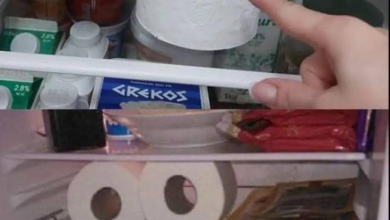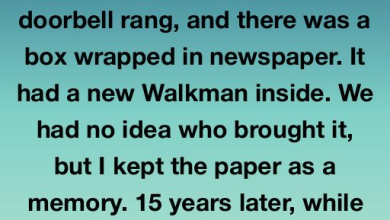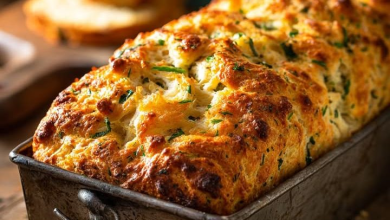“The Year Christmas Got a New Home”

Every year, I host Christmas. I scrub for days, plan menus down to the minute, coordinate oven schedules, and usually carry a permanent dusting of flour by mid-December. This year, between my full-time job, the chaos of school schedules, and the house never staying clean for more than ten minutes, I hit a breaking point. I called my mom and, as calmly as I could, told her I wouldn’t be hosting.
She didn’t pause before snapping, “I can’t believe you’d abandon your family like this!” The familiar heat rose in my chest—the one that flares when I’m treated like a family event coordinator instead of a human being—so I ended the call before saying something I’d regret.
The next morning, my aunt texted: “Mom’s telling everyone you’re deliberately ruining Christmas.” I stared at the phone, exhausted and frustrated. I hadn’t ruined anything; I was just asking for a break. Christmas shouldn’t feel like a second full-time job.
I turned off my phone and took the kids to the park. The air was crisp enough to see our breath, but the sunlight was gentle. Nora tugged on my sleeve. “Are we still having Christmas?” she asked. I kissed her forehead. “Of course. Maybe a smaller one this year.”
That evening, I checked my phone to find a flood of missed calls and messages—my mom, my cousin Lisa, my brother three states away, all likely rallied for a family intervention. Instead of responding, I poured a glass of wine and sat by the glow of the tree, letting the quiet sink in.
The next morning, I called Lisa first. “Your mom is not happy,” she said. “I figured,” I sighed. “I just can’t do it this year.” She paused. “Then let me handle it. I’ll host.” I blinked. “Really?” She laughed. “I’ve got the space, and honestly… it might even be fun. We can mix things up.”
I felt a weight lift. “What about Mom?” “She’ll survive,” Lisa said. “Or she won’t. Either way, you need a break.”
Lisa moved quickly. She sent a group text with a potluck sign-up, assigned decorations, and called it a “team effort.” Some relatives supported it; some didn’t. My mom didn’t call at all, which felt strange. I half expected her to show up on my doorstep with a fruitcake and a lecture.
On December 22, there was a knock. My mom looked smaller than I remembered, worn in a way I couldn’t describe. “I was in the area,” she said, which I suspected wasn’t true, but I let her in. The kids were on the couch, absorbed in a Christmas movie, and for a moment, the room felt softer.
“I didn’t mean to upset you,” I said. “I’m just overwhelmed.” She sat on the edge of the couch, hands folded. “I thought you were being lazy.” I raised an eyebrow. “Thanks for that vote of confidence.” She winced. “I said I thought that. Lisa told me what you’ve been handling. I didn’t know.” “I told you I was tired.” “Not how tired.” I considered it. “Would it have changed anything?” She looked at her hands. “Maybe not. That’s on me.”
We sat in silence for a moment. “Christmas has always been how I show love,” she said finally. “Bringing everyone together. Making it perfect.” “It’s not perfect,” I said evenly, “if I’m crying in the bathroom and you’re calling the turkey ‘a little dry’ for four years in a row.” She twitched her mouth. “I may have said that.” “You did.” She exhaled slowly. “It wasn’t fair. I get that now.”
She stood. “Lisa asked me to help this year. I think I will.” “You’re not mad anymore?” “I was. But I think it’s time I help more and expect less.” She hesitated, then smiled. “Can I bring my cranberry pie?” “Only if you retire ‘world-famous.’” We both laughed.
Christmas morning, for the first time in years, I didn’t wake at dawn to baste anything. I stayed in pajamas until eleven, played board games with the kids, drank coffee while it was still hot, and didn’t vacuum a single baseboard. At Lisa’s, the house glowed—twinkle lights, soft music, that warm hum of people enjoying each other. My mom stood in an apron, pulling a pie from the oven, waving me in like I was royalty. “You made it!” “Wouldn’t miss it,” I said, meaning it.
Lisa was a natural—organized without being rigid, generous without martyrdom. The day flowed. People talked to each other instead of hovering around me with questions. I ate while the food was warm. I sat. I watched my kids laugh with their cousins. I was present.
After dinner, Lisa raised a glass. “This year’s different,” she said, smiling at me. “But I think it’s been healing. Traditions aren’t about who hosts or how perfect the napkins are. They’re about showing up.” My mom wiped a tear and squeezed my hand. “She’s right,” she whispered.
That night, after pajamas, teeth brushed, and Nora whispering, “Can Aunt Lisa do it every year?” I tucked blankets around little shoulders and turned out the light. My phone buzzed—a message from my mom: Thank you for standing your ground. You taught me something this year. Love you.
It turns out the world doesn’t crumble when you say no. Sometimes it begins anew. Boundaries aren’t a rejection of love; they’re an invitation to share it. Christmas didn’t fall apart without me at the helm. It expanded—making space for other hands, other recipes, other ways to show up.
I’ll host again someday, maybe. Or we’ll rotate. Or Grandma will insist on her turn, and we’ll all grin through the “world-famous” pie. But now I know this: love isn’t measured by how much you sacrifice. Sometimes it looks like rest, honesty, and letting others step in.
And if you need the reminder—no isn’t selfish. It’s a door. On the other side may be the holiday you’ve been waiting for.




